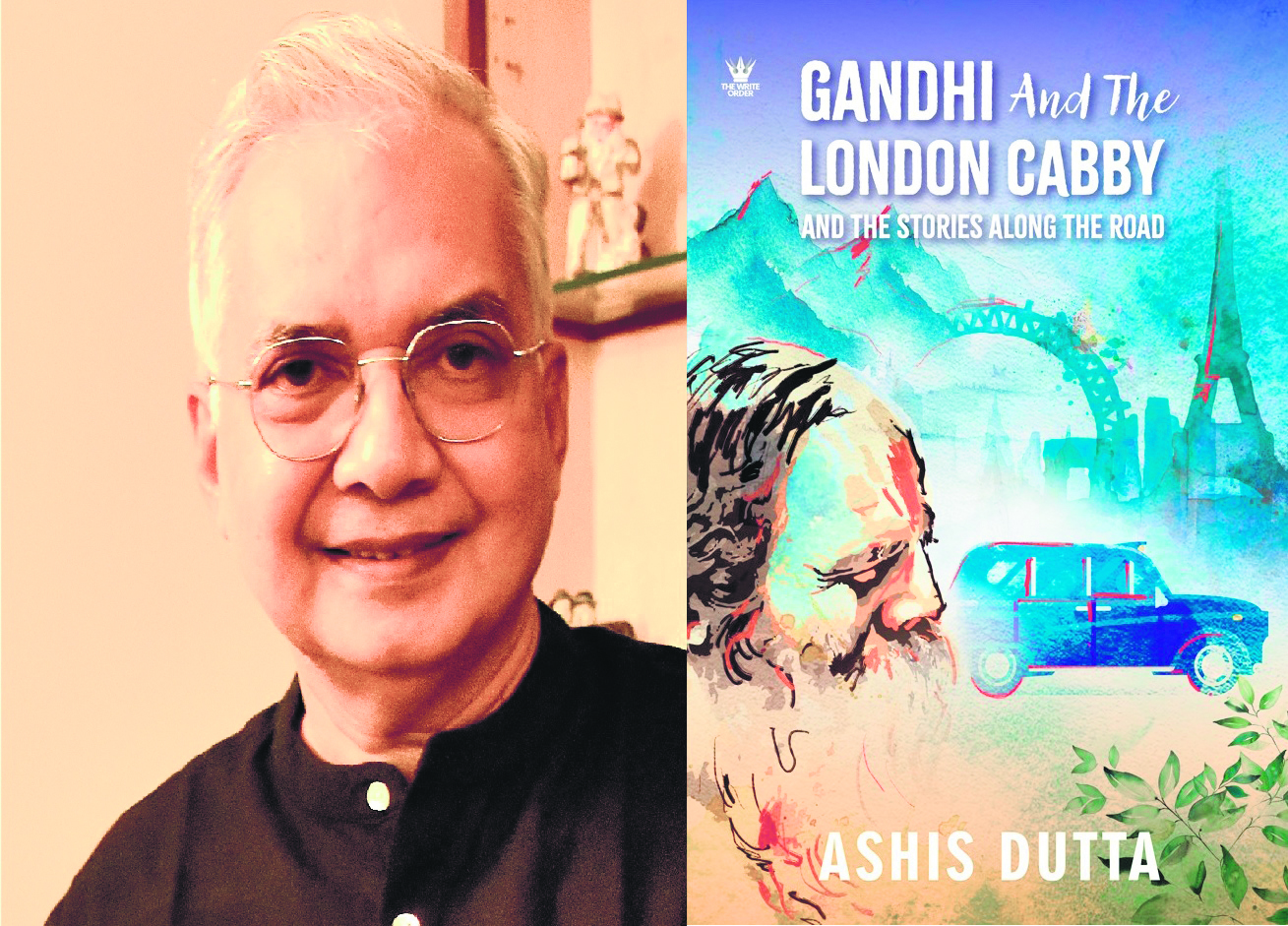
A software entrepreneur from Bangalore by profession, Ashis Dutta has also been a professional freelance writer for over two decades. Mainstream newspapers, in-flight, and travel magazines publish his travel, music, and cultural writings. “Whether in Jerusalem or the remote Himalayas, stories stalk me during my travels,” he says. His book, Gandhi and the London Cabby is a delightful ensemble of such stories. Narrated in a lucid story-telling way, each story brings out the aroma of human nature and relationships. Of wonder and fear, agonies and ecstasy – subtle and loud. And always, of sheer delight.
Q: How long have you been writing or when did you start?
I have been writing professionally as a freelancer in mainstream newspapers and inflight magazines for the past 24 years. My articles have been published mostly in India, though a few times in the USA and Canada as well through professional syndication services.
Q: At what point did you decide to be an author, and what was your path to publication?
Well, the thought of the book had been dangling in my mind for long. Parts of it had been written over the years. But it got impetus during the work-from-home schedule in the pandemic. That flexibility gave me enough time to dedicatedly finish writing the book. I had to scout for a suitable editor who would ruthlessly scrutinize my writings and a publisher who would be able to distribute the book online and in physical bookstores.
Q: Describe your writing process. Do you outline, plot, and plan, or is your writing more organic?
It’s a mix of both. Since the book is about stories that unfolded unexpectedly, some out of the blue, during my travels, for each piece, the broad storyline was there. But the flow, the way, and the perspective from which a story is to be narrated, and the characters who would be in, formed the creative process. It is always the style. The unique voice of a writer. This invokes the experience a reader goes through while reading.
Q: What inspired the idea for your book?
I have been a travel writer for long. So, to write a book on travel stories is a natural progression. And you know, I have this uncanny feeling that stories stalk my travels. Sometimes they arrive with an earth-shattering thump, as in one of the stories in the book. On another occasion, it unfolded when I thought the story was over.
Q: What part of the book did you have the hardest time writing?
When I have a story in my head, writing it down comes in a natural flow. Often, I write in a state of trance. For me as a writer, for the stories in the book, the hardest part was to step back and edit a story, each story, deleting sections, and making the narrative crisp.
Q: Is there anything you would like people to take away from your book?
I take the reader through a fascinating journey along with me. Be it Jerusalem or in the remote Himalayas. And I make the reader discover unknown facets of even the most familiar places. And the captivating people in the stories. Their impulses, their rock-like strengths, their frailties, their biases, even their mischievous fooling around with me. How these manifest, sometimes stunning everyone around in one swift moment, sometimes unfolding in slow-mo.
Q: What is your favorite line from your book?
Many readers have told me about their favorite lines or events from the book. So, I leave it to the readers to have their favorites.
Q: What do you like to do when you’re not writing?
Let me tell you, I have a software business to manage, ha ha ha. I am a voracious reader and am also crazy about traveling. So, it’s a mixed bag of work, reading, writing, traveling and planning for travel.
Q: If you could spend a day with another popular author, whom would you choose?
Why just one author? I would spend each day of the month with a different author. Somerset Maugham one day, John Updike the next, Yuval Harari one day, and Nassim Nicholas Taleb another day. I will keep Rumi and Tagore for the last two days of the month.
Q: Finally, how are readers responding to your book?
Oh, I am often surprised by the intensity of their interaction. Many communicate with me over email at connectwithashis@gmail.com They often feel that the places in my stories are not just destinations but characters in the stories, even co-conspirators, ha ha ha. They love the journey into such places and the lives of the characters in the stories. It’s their journey, they feel it.